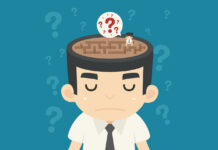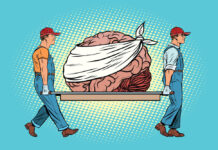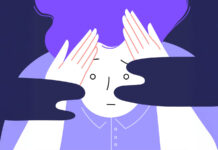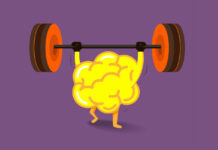What Are Waking Dreams, and Why Should You Care?
Indigenous cultures around the world recognize and intentionally cultivate waking dreams for both personal and community well-being.
The Emperor’s New Clothes? The Psychiatrist as Expert in a Post-Modern World
Psychiatry has fallen to too many fads and abusive treatments over the decades to hold current treatments with any confidence.
Are Psychiatrists More Mad Than Their Patients?
Misconceptions among psychiatric leaders are at variance with the scientific evidence. They suffer from a serious, collective delusion.
DOOCE: A Case Study on the Failure of Psychiatry
Heather Armstrong’s life was taken by psychiatry, and our unwillingness to scrutinize their methods of madness.
Family Traditions and the Inheritance of “Madness”
Families are not merely a source of comfort and support but also a breeding ground for dysfunction, unhealed trauma, and emotional neglect.
Exploring How Muslim Therapists Work With Jinn Possession
How do Western-trained Muslim therapists work with clients that believe they are possessed? How do they balance their belief in Jinn with their knowledge of psychological/sociological theory? How do they formulate and work with a client in the British context?
How to Avoid Severe SSRI Withdrawal Symptoms?
After long-term use, most people are going to have serious symptoms when stopping SSRIs. Many people are going to have transient, mild to moderate difficulty and some are going to end up falling down the akathisia rabbit hole. That is a long, difficult drop.
Why Should Suicide (Or Voluntary Death) Be a Civil Right?
Regardless of what one's moral stance is on the value of life, or the meaning of death, it is time to recognize that there are people whose views differ from ours, and that we do not have the right to force them to live (and die) the way we want to. We all die; it's the journey that matters, not the destination.
Catherine’s Story: A Child Lost to Psychiatry
A year ago today, our youngest child died, thanks to the adversarial actions and toxic treatments foisted on her by medical-model psychiatry. By telling her story, we hope to promote systemic change.
Reimagining Healthcare
The conventional Western classification systems of health conditions are based on flawed science shaped by reductionist, hierarchical, and profit-driven ideologies. THEN wants to create a new paradigm built upon principles drawn from systems science, the life course perspective, developmental neurobiology, and other evidence-informed studies.
Victim Blaming: Childhood Trauma, Mental Illness & Diagnostic Distractions?
Why, despite the fact that the vast majority of people diagnosed with a mental illness have suffered from some form of childhood trauma, is it still so difficult to talk about? Why, despite the enormous amount of research about the impact of trauma on the brain and subsequent effect on behaviour, does there seem to be such an extraordinary refusal for the implication of this research to change attitudes towards those who are mentally ill? Why, when our program and others like it have shown people can heal from the effects of trauma, are so many people left with the self-blame and the feeling they will never get better that my colleague writes about below?
What Helped and What Hindered My Recovery from PSSD and Protracted Withdrawal from Antidepressants?
To recover from protracted withdrawal, I did everything I could to survive the process and help my body and mind heal.
“Get Over It”? A Response to Empower Parents to Repair Instead of Victim Blame
An epidemic of children blaming their parents in therapy? In my 20 years as a psychologist, I've seen the opposite.
Making Peer Counseling Radically Accessible
I imagined a world in which anyone can hit a button on their phone and be connected with a compassionate and empathetic listener, 24/7. So in 2019, I founded Peer Collective. Today, there are 30 peer counselors on the platform offering 30-minute counseling sessions for just $14.
The Quiet Crisis in Mental Health: The Medicalization and Deskilling of Psychotherapy
The focus on the "worried well" and the exclusion of the "mad" serves to legitimize psychiatric control and surveillance.
Schizophrenia in Philosophy and Theology
From Socrates to Jesus to Nietzsche, all experienced divine Beatific Visions, just as I have.
A Reflection on “Unshrunk: A Story of Psychiatric Treatment Resistance”
The act of diagnosis is so influential on a person’s sense of self that its limitations need to be repeated again and again and again.
Observational Studies Confirm Trial Results That Antidepressants Double Suicides
Depression drugs don’t work, and they increase suicide.
Bad Science Revisited: “The Bell Curve” Turns 30
Critiquing the wildly popular 1994 eugenicist book, which purported to link IQ and race, by reviewing the supposed genetic evidence.
ADHD and “Weak Muscle Disorder”
"ADHD" doesn’t explain inattentiveness, just like "weak muscle disorder" doesn’t explain muscle weakness, just describes something improvable.
The Trauma Craze: How the Expansion of Trauma Diagnoses Fueled Victimhood Culture
Exploring the paradox of increasing trauma diagnoses in a safer world and the proliferation of trauma culture.
RFK Jr. May Be Wrong on Many Medical Issues, But He’s Right About Antidepressants
Documented cases show a link between SSRIs and school violence, but pharma has suppressed the data that could prove this link.
Spiritual Side Effects of Psychiatric Medication: From Helpful to Harmful
The larger narratives put forth by psychiatry and neuroscience often eclipse the equally important stories of lived experience. The easiest way to understand how people are engaging spiritually with their prescriptions is to hear it in their own words.
Having Empathy Doesn’t Mean That You Also Have Compassion!
There’s a very common, pop-psychology, new-age misconception that conflates being empathic with being caring and compassionate. But some of the most highly empathic people I’ve ever known have been con artists, grifters, unrepentant thieves, cynically manipulative fearmongering politicians, and heartless predators of every kind.
The History of Madness Network News and the Early Anti-Psychiatry Movement
Madness Network News, founded in 1972 by two women inmates of Agnews State Hospital, was an anti-psychiatry journal that served as the focal point for organizing throughout North America, and even overseas.

































